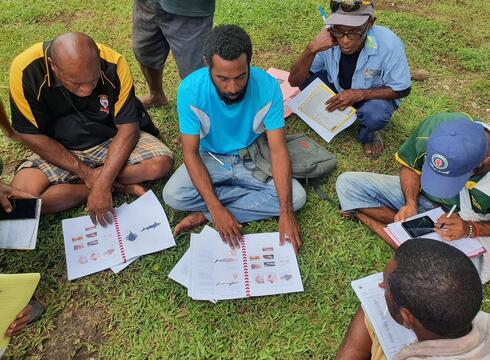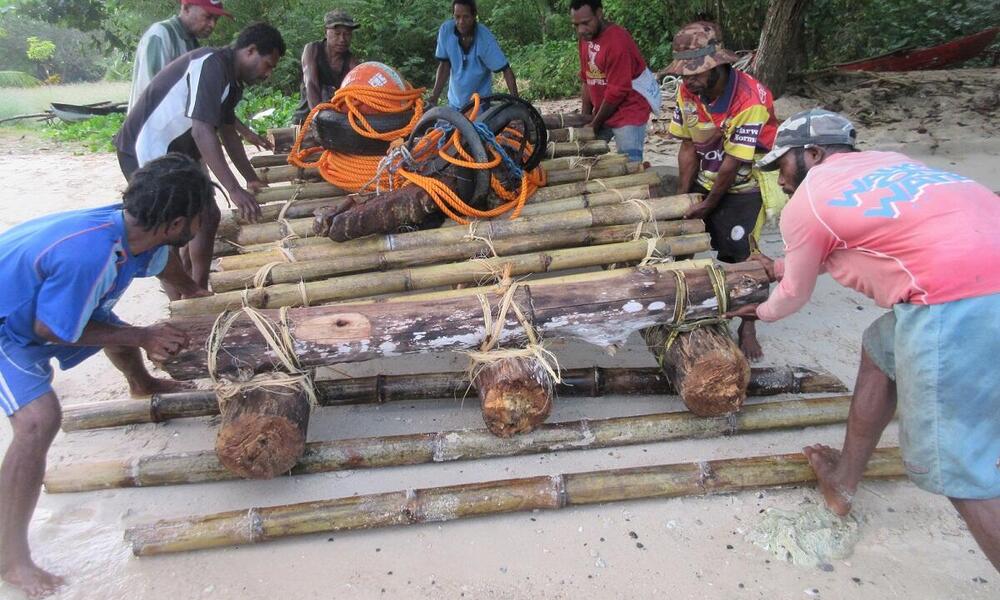Why is it important to you to restore the ocean's health?
My motivation to study biology and conservation was to educate my people about the sustainable use of our resources. It is important that coastal communities know how to fish sustainably and be aware about the impact of human activities. People talk about leaving a better planet for our children, but we need to leave better-informed children for our planet.
Sharks and rays worldwide are facing the risk of extinction due to habitat degradation and overexploitation. I work with WWF and communities to collect data on sharks and rays as bycatch in my home region. We identify catches and conduct surveys to assess the local fisheries' possible threats, and train community members to identify shark and ray species, take photographs and create databases. The data collection allowed us to identify an endemic shark species that was believed to be extinct: the sailback houndshark (Gogolia filewoodi). Hopefully, our report will be used to update the protection status of threatened sharks and rays in Madang Province and to advocate for community conservation areas.
What challenges did you encounter working with coastal communities and what solutions did you develop?
With 85% of its population living in rural areas and limited communications infrastructure, information in Papua New Guinea can travel slowly. Many communities are unaware of regulations and the motivations behind government policies. The government establishes marine protected areas (MPAs) as a strategy to conserve natural resources and NGOs work with coastal communities on their implementation. Yet, it is a challenge to find the resources to effectively manage protected areas. So, species in these areas are increasingly threatened.
Papua New Guinea, a country that is rich in natural resources, has signed international treaties and developed beautifully written legislation. Turning the words into action is a struggle. The communities want what people everywhere want: the opportunity to earn a living and live comfortably.
While working with the community members, I explain why we collect data, the threats sharks and rays face because of human activities, the importance of healthy ecosystems and how a sustainable use of marine resources would benefit their communities in the long term. I hope that they will share this knowledge in their communities.
How can you bring local solutions to scale?
Sharing information is an important first step. Coastal communities should know that their traditional practices, like taboo areas where fishing is not allowed, are the basis of today’s MPAs. The benefits of protection contribute to long-term economic prosperity.
The community facilitator model is an effective way to get community members involved in data collection and science in their own backyards. I would like to conduct further studies on species abundance and the spawning potential of sharks and rays with the communities. High-quality data collection supports science-based decision-making.
As an Ocean Witness, what final message would you like to share?
It is devastating to witness the negative changes in the ocean knowing it is impossible to stop these changes overnight. The ocean is not just a supplier of our needs: she is alive and hurts when we harm her, and flourishes when we respect her. I want to see the ocean thriving again, full of marine life in healthy ecosystems that can sustain our livelihoods. It is my life's purpose to restore and protect the ocean, one step at a time. Many small things make a big difference, so do your part in restoring nature’s balance. The time is now.


